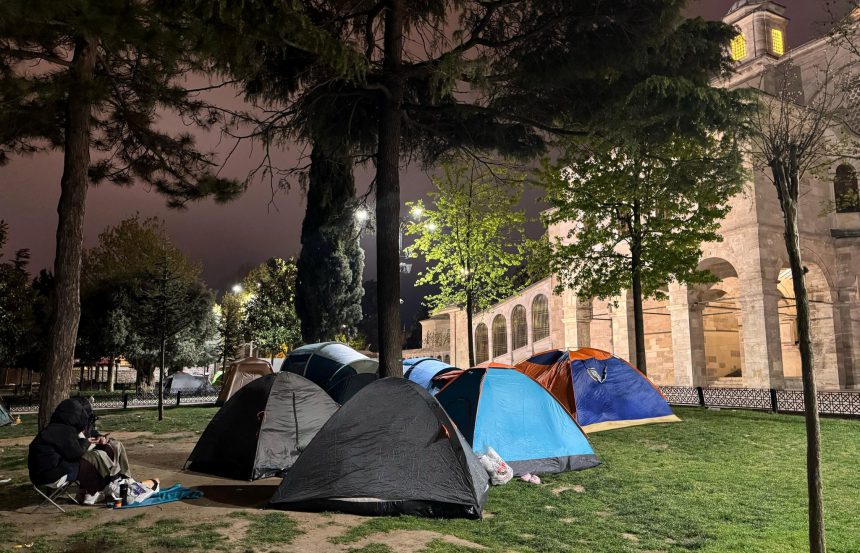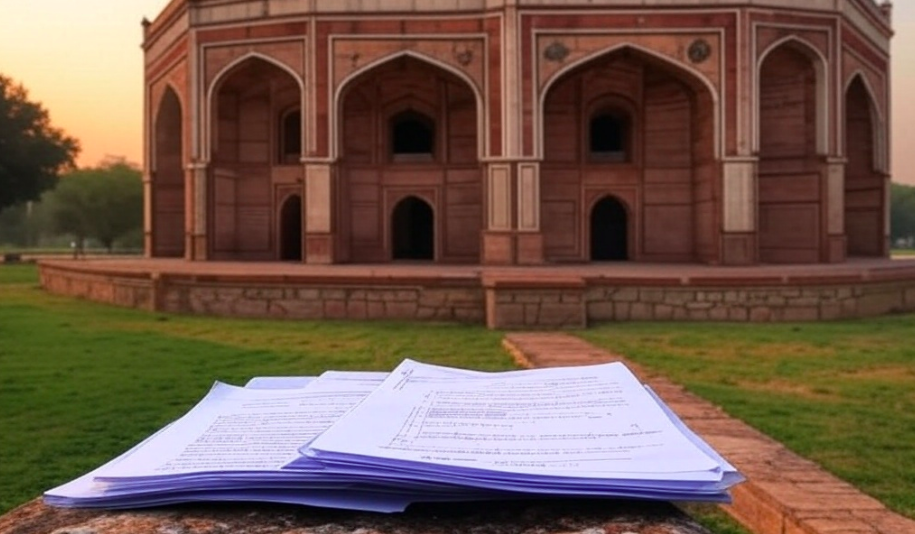April 23, 2025 — It was a national holiday in Türkiye, celebrated as ‘Children’s Eid.’ Yusuf, too, went out with his mother to join a local celebration. I chose to stay home and catch up on some work.
Around noon, while half-lying on the bed and reading, I suddenly felt a slight tremor. Immersed in my work, I brushed it off as just my imagination. By 12:30, I thought it was time to refresh myself with some tea and then get back to writing. When I entered the kitchen, I realized that the tea my wife had made earlier was already finished. Left with no choice, I decided to make a fresh cup of tea myself.
I set the kettle on the stove and began casually scrolling through my phone. Then, precisely at 12:49 PM, the stove started shaking violently — and so did I. Instinctively, I grabbed the kettle just in time, more concerned about saving the tea than myself!
Moments later, an alert from Türkiye’s Disaster and Emergency Management Authority (AFAD) popped up on my screen: an earthquake of 6.3 magnitude had struck, originating at a depth of seven kilometers and lasting for 13 seconds.
By then, the noise had erupted outside. People from my building were rushing down the stairs in panic. I quickly opened the door — barefoot, without socks or shoes — and was about to run out when I remembered my jacket. By that time, my door had already been locked. Hastily, I reopened it, grabbed my jacket, and ran outside.
Everyone outside had their eyes fixed on me, and for a moment, it felt as if they were thinking, “What a weird man he is!” But the reality was quite different — everyone was actually worried about Yusuf and anxiously asking about his whereabouts. I immediately called my wife, and, thankfully, both she and Yusuf were safe. In fact, my wife sounded much better than the people around me, perhaps because she was with her friends.
After that, I began calling friends to check on their well-being. Alhamdulillah, everyone was safe. However, the aftershocks kept coming. According to a Daily Sabah report, by 9 a.m. on April 24, a total of 266 aftershocks had been recorded following the initial 6.2-magnitude earthquake — 258 of them ranged between 0 and 4 in magnitude, seven between 4 and 5, and one aftershock was recorded above 5. This series of tremors was still ongoing. By my own estimate, nearly a thousand aftershocks must have occurred by now.
After spending about an hour on the road, it struck me that the tea I had started to make was still unfinished. Determined to finally have it, I decided to return home. As I made my way back, once again, I could feel everyone’s eyes on me, perhaps wondering to themselves, “Why is he going back inside now?”
Well, I was back inside the house. As soon as I turned on the stove, it began to shake violently once again. Abandoning the half-finished tea yet again, I rushed outside and made my way to a nearby park, which was already packed with people. The children, in particular, looked terrified. The memories of the devastating earthquake of February 6, 2023, were still vivid in everyone’s minds.
As I spoke with others, it became clear that, thankfully, there had been no major damage this time — just a few injuries, mostly from people who had jumped hastily from their balconies in panic. Mercifully, there were no casualties. Amid all this, one thought kept haunting me: What if a similar earthquake struck Delhi? Instantly, images of Jamia Nagar flashed before my eyes — the narrow lanes, the overcrowded buildings, the helpless chaos.
At that moment, I remembered the half-brewed tea waiting for me at home — and realized I needed it more than ever. I headed back. Once home, I first reheated some food, finished eating, and finally sat down to savor the long-awaited cup of tea, before returning to my work. Meanwhile, I assured my wife over the phone that there was no need to rush back home; she should enjoy her time with friends a little longer.
From time to time, I would step out onto the balcony and observe the street scene. Then came another piece of news: the government had announced a two-day closure for all educational institutions. Additionally, disabled individuals and women were exempted from reporting to work.
As soon as this announcement was made, a mass exodus began. People started packing up their cars and heading toward their villages outside Istanbul. Here, it’s common for families to own two homes — one in the city and another in the countryside, often referred to as a “summer house.” Those who stayed behind set up tents in the parks.
Meanwhile, acts of kindness unfolded all around. Volunteers were distributing food and bottled water to those gathered. A friend shared a cheerful piece of news: a coffee shop in Istanbul had opened its doors to everyone, offering free coffee and a quiet place to sit and work. Government relief teams were also distributing food and water across the city, and mosques had made special arrangements for shelter and sustenance.
In the evening, Yusuf returned home, his face blushing with the marks of strawberries he had eaten on his way home and glowing with the happiness of ‘Children’s Eid’. It was clear he had enjoyed his day to the fullest. After dinner, we decided to step out again and head to the park. The atmosphere there was entirely different — families were gathered together, grilling kebabs, helping each other, and talking late into the evening. It felt more like a picnic than the aftermath of an earthquake.
For a moment, we also thought about staying in the park, but lacking a tent — and with the chilly weather setting in — we decided to head back home. As soon as I lay down on the bed, another tremor shook the house, likely around magnitude 4.6. I turned to my wife and said, “Recite the kalma (shahada)… if we live through the night, we’ll meet again in the morning.”
Until yesterday, many people had been camping out in parks, too fearful to return to their homes. But today, it seems life has returned to normal. Offices have reopened, children are back in school, and the roads are bustling with traffic, as if nothing had ever happened
Yet, one unsettling question keeps echoing in my mind: What if an earthquake of this magnitude had struck Delhi? Would the congested neighborhoods, with their narrow lanes and aging buildings, have been able to endure the shock? Would people have found enough time — and space — to escape safely? Do we even have enough open areas like parks in our localities to shelter those in need? Is our emergency response system equipped to deal with such a crisis swiftly and effectively? And most importantly, would people have cared for and supported one another in a spirit of solidarity, or would panic, confusion, and mismanagement have taken over? These are not just hypothetical questions. They are a wake-up call, knocking at the doors of our collective conscience. Perhaps the time to find answers is not after facing a disaster, but right now.









